The separation of the market and the state into mutually exclusive zones has always been problematic. One reason for this is clear: a market economy cannot exist, much less operate, without some kind of political order. This is not a new observation, nor is it one with which many (political) economists, even neoclassical economists, would disagree. There is, however, a great deal of disagreement over exactly what kind of political order is needed. Some take a minimalist view: the best political order is one in which the state only provides the legal-institutional framework for enforcing contracts and protecting private property (this is a view with which most neoclassical economists would agree). Others are convinced that the most appropriate political order is one in which the state plays an active and direct role in a much wider range of economic activity. Rather than discuss, in detail, the full range of different perspectives on this issue, it might be better to concentrate on just one. In this regard, I would like to introduce you to Karl Polanyi, who I mentioned earlier and whose work offers a useful perspective for understanding the state-market relationship.
Polanyi and the State-Market Dichotomy
Almost 70 years ago, Polanyi wrote about the inextricable connection between the emergence and subsequent development of the market economy and the modern state. In one of his most important works, The Great Transformation, Polanyi explains how the “road to the free market was opened and kept open by an enormous increase in continuous, centrally organized and controlled interventionism [on the part of the state]” (1944, p. 140). This was necessary because the market economy, as we know it, required a very unnatural action—i.e., turning land, money, and especially labor into commodities, or things to be bought and sold. To accomplish this required a great deal of political power, exercised primarily through the state. For Polanyi, it is not difficult to see why this was so. Prior to the advent of the market economy, labor and land were decidedly not commodities; rather, they were “no other than the human beings themselves of which every society consists and the natural surroundings in which it exists” (ibid., p. 71). To turn them into commodities required an intentional and sometimes highly coercive effort, which only the state was capable of carrying out.
Once created, the so-called free market continued to rely on the exercise of state power. As Polanyi put it, “Just as, contrary to expectation, the invention of labor-saving machinery had not diminished but actually increased the uses of human labor, the introduction of free markets, far from doing away with the need for control, regulation, and intervention, enormously increased their range … even those … whose whole philosophy demanded the restriction of state activities, could not but entrust the self-same state with new powers, organs, and instruments required for the establishment of laissez-faire” (ibid., p. 140). In other words, the expansion of control, regulation, and intervention is an inevitable outcome of a “free” market. This is a crucial insight, and one that allows us an even stronger understanding of the mutually constitutive—or dialectical—relationship of the state and the market. Nor is it, in retrospect, a particularly controversial view.
Nonetheless, it was not a generally accepted proposition when Polanyi first wrote about it, and still today, among many neoclassical economists and popular pundits, there is a strong conviction that markets can and should be kept isolated from the meddling of states. This conviction, it is important to point out, is based on the assumption that, for the market to operate efficiently, it must stand apart from the state. As I have already discussed, though, even in the mainstream, there are some economists who implicitly recognize that this separation is problematic. Among scholars of international political economy, more importantly, it is fair to say that Polanyi’s views are generally accepted (although there certainly may be disagreement on specific points). In other words, there is an understanding that markets and states are interdependent, or mutually constitutive: each depends on the other, and therefore they cannot be analytically separated.
Polanyi also examined the relationship among the market, state, and society. He argued that the state continuously plays a critical role of mediating between the market and society (on this point, it is important to note that Polanyi indirectly challenged the older Marxist view that saw states as tools of the dominant class; indeed, while Polanyi drew from Marxist analysis, his own work opposed Marxism on important issues [see Block 2003]). That is, the state helps to establish and maintain the framework within which market activity takes place, but it also provides social protection to society from the inevitable “destruction” wrought by market forces. The concrete result of state intervention between the market and society has been a range of political orders or arrangements. Some of these we call capitalist, others we call socialist or communist. And, of course, there are versions in between, including the modern welfare state, of which the United States is just one example. No one of these arrangements, I should emphasize, can be said to be necessarily superior to another. This is because various political orders represent, at base, a mixture of different values, such as efficiency, equity, security, justice, and so on.
Which value is given the highest priority and which is given the lowest reflects decisions made by individual societies, albeit within the context of a broader international/transnational system. Thus, to say, for example, that economic efficiency is more important than any other value is not to make an objective or scientific statement that must apply to all cultures and societies. Rather, it is to make a subjective or normative judgment, which typically reflects how the tension between the market and society has played out over time. Overall, then, Polanyi’s framework allows us to see that even a very narrow conception of politics as state action cannot be seen as standing in opposition to the market, or economics.

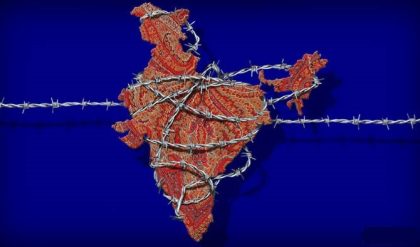
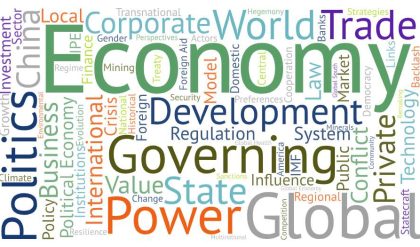
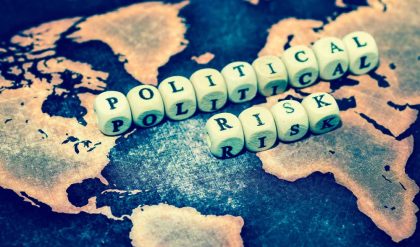
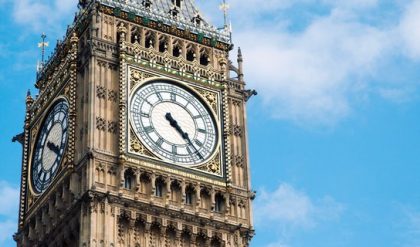
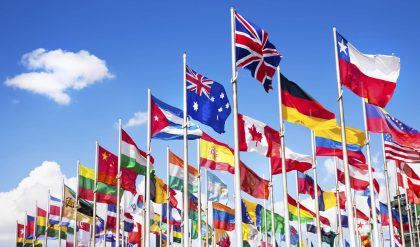
Comments are closed.